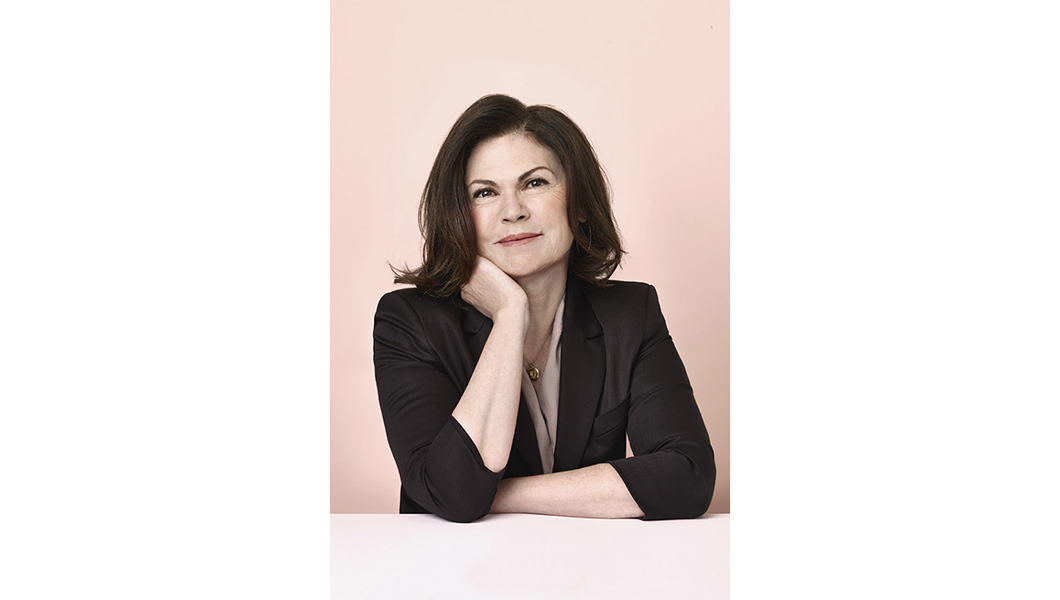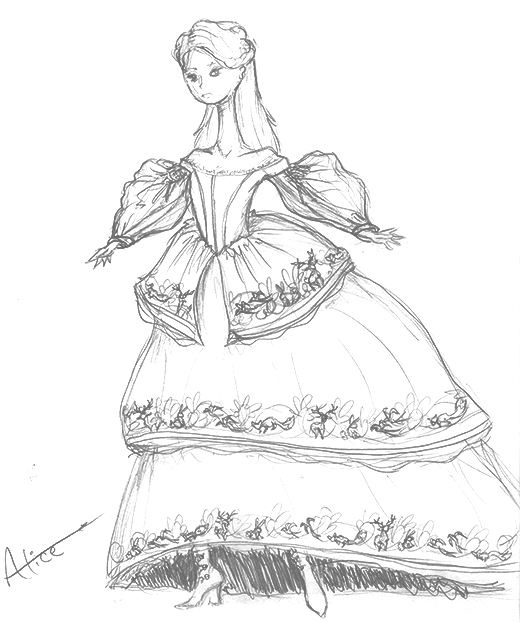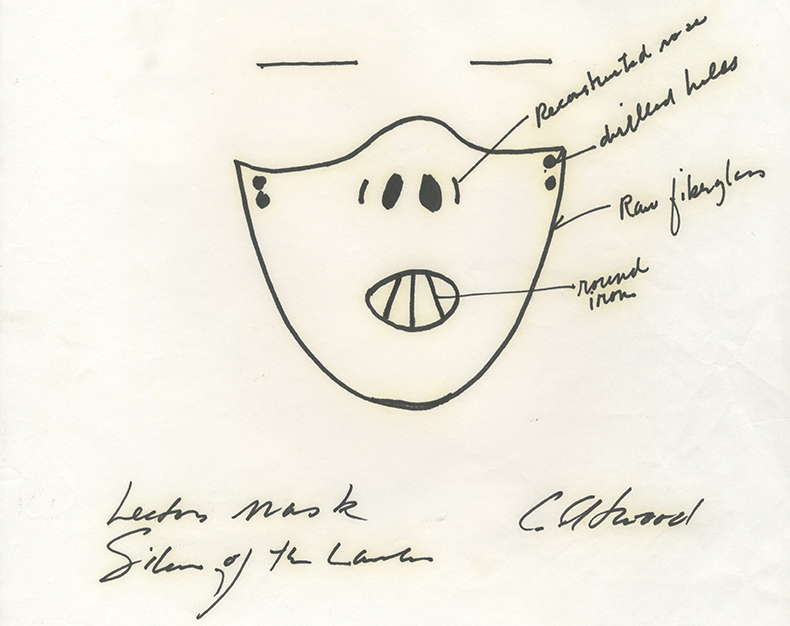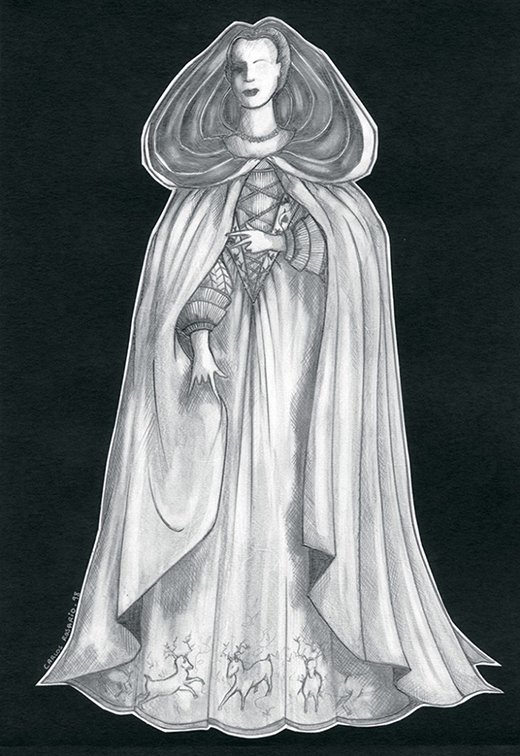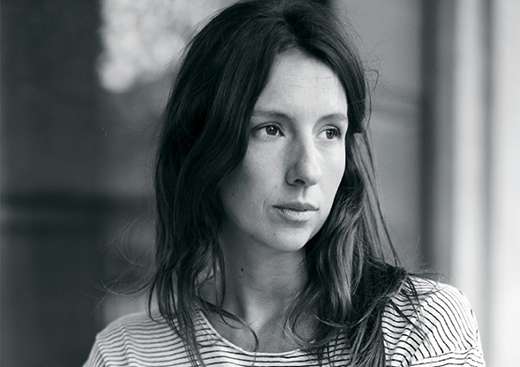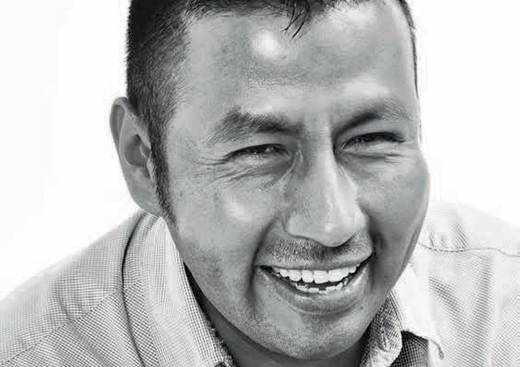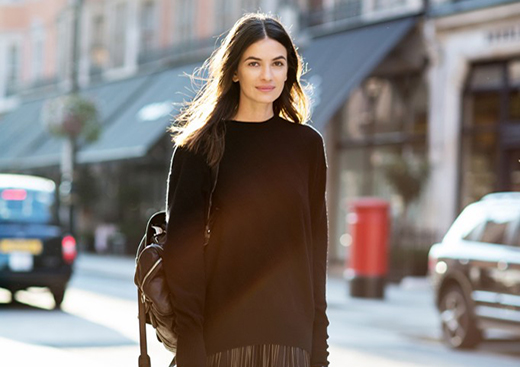I was introduced to COLLEEN ATWOOD 15 years ago. As someone who works “in costume,” I was of course curious how Colleen produced such interesting designs. Expecting a serious type of person, I walked into her office and she was on the floor, doing a yoga handstand against the wall, and shook my hand upside down. That’s kind of how I always think of Colleen—looking at things from a different angle.
Our personalities clicked, and I have been lucky enough to be able to work with her almost exclusively for quite some time. We both come from small towns, me from Texas and Colleen from Washington state; I think we are similarly able to be open to new ideas and experiences, as curious people are when they have outgrown their surroundings. That open-mindedness is the main thing we have in common, both in our working relationship and, over time, what has become a great friendship.
When Colleen and I are working, we spend enormous amounts of time in the car together. Whether it’s going from fabric store to fitting or driving to locations that at times may be two to three hours away. When we are on the open road, we listen to everything from Sons of the Pioneers to Kanye West. And when we aren’t listening to music, we talk. We talk about anything and everything, taking in all that we pass along the way.
Christine: You grew up on the flat, plain side of Washington state. How do you think that influenced you growing up? Did it inspire you or did you just want to get out?
Colleen: I think that, when you grow up in a place that’s pretty empty, that in your mind you’re able to fill up the space in different ways and appreciate the beauty that’s in the things that aren’t there, like the sky as opposed to a bunch of buildings or the one tree as opposed to the forest, which is a different kind of sensibility that I think affected my design sensibility and what it was. Of course, I was driven to leave in a way, too, because I wanted to be stimulated in different ways. But I think ultimately growing up in a place that is nominal like that, you learn to see different things in a different way and you appreciate the—what you call in art “negative space.”
Christine: You kind of have a cowboy attitude. Do you think that’s part of it? You’ve kind of taken it in now and appreciate it more?
Colleen: No, I think I’ve always loved it because I think that the two things that I wanted to do as a kid were to be an artist or to own a ranch. My grandmother and my grandfather were ranchers, and I spent a lot of time in a very beautiful ranch environment. I’ve always loved it.
Christine: Your ideas come from all over the place. Do you think that you’re on all the time? Just absorbing all the time, from everything you see? Or do you give yourself a break sometimes?
Colleen: I don’t think about it consciously really. I think when you’re out and around you see stuff and sometimes you go, Oh man look at that guy over there. I wish I had seen him on my last job. Or you just look at people and you get inspired from what they’re doing or the way they’re acting or a piece of material. But it’s almost like you look at it and it flows through your subconscious in a way and comes back in strange ways. Like last night, I had a dream—I used to make model towns when I was little, and I dreamed I was making one and the roads were made out of rickrack.
Christine: Oh, nice.
Colleen: I was like, why am I dreaming—about rickrack?
Christine: The winding streets in town?
Colleen: Yeah, because I saw velvet rickrack yesterday and got excited for a minute.
Christine: Lovely. That’s awesome. I read a quote—something a while back where you said, “Costume is the first impression of a character you have before they open their mouths. It establishes who they are.” How does that translate into your new bag line that you’re going to be coming out with? You’ve given each of your bags a character name, right?
Colleen: It’s changed a little bit from that because it started out as character names or place names. One bag is called [Scala] because it’s kind of an Old World bag, and I was going to Italy to design [La Scala] and I kept thinking of it as the bag, that Milanese bag [the Scala]. I’m inventing names as they go. They’ve shifted a little bit from the original concept, too, where I was thinking kind of almost like women’s personalities. And I think it’s become a combination, a marriage of the two.
Christine: Say you’re styling someone in modern clothes; do you go about that the same way? Do you need to get to know that person to get a personality read from them so that you can draw that into part of a design?
Colleen: I think I do that no matter whether it’s modern or period. You can’t really design a character without knowing who the character is going to be. Even though you read about the newest idea. You think fondly of films that you’ve worked on before, but is that true? Is it that you just look forward to thenext challenge?
Colleen: I like the idea of taking what I know, taking what I’ve done and trying to not do it again the same way and always trying to be fresh and come up with new things. I think that excites me more than going down memory lane and going, “Oh, on that job I did this and on that job I did that.” You kind of remember, “OK, I did that there, that worked kind of good, but for this it’s not right,” and come to a new place.
Christine: And past ideas that maybe didn’t get completely thought out on other jobs.
Colleen: Yes, or used sometimes, which is always kind of a drag. But still you go, “OK, I’ll save that for another day.”
Christine: Just put it in your back pocket. What are you working on right now?
Colleen: I’m working on Through the Looking Glass. It’s the Alice in Wonderland second book. It’s a similar kind of fantasy sort of atmosphere, sort of like the first one. Same cast, basically part two, which I’ve never done before. It’s kind of weird for me, but I didn’t want to not do it because I liked the process on the first one so much. I’m also working on this first project, this purse project, which is an ongoing thing and something I think about every day and do a little bit on every day while I’m doing everything else. And then I’m getting ready to do a movie called Miss Peregrine’s Home for Peculiar Children, which is a wonderful Tim project that I’m really looking forward to but haven’t started yet.
Christine: Do you have any personal heroes? Maybe now and also maybe when you were young?
Colleen: I think the people that I admired when I was young were my grandparents probably the most. I grew up when Kennedy was president. He was a great hero, and Martin Luther King Jr., but it was sort of a hero that was so huge that it was sort of untouchable.
But my parents and their stories and their histories, which were very diverse, were fascinating to me when I was a child, and I still think they are great stories. As you go through life and become an adult, you have the great heroes of politics and the great heroes of religion, like the Dalai Lama. They’re heroic people, but to me some of the people that I’ve met through a charity that I helped with that worked with children that need serious medical help are really amazing heroes. I think that anyone that works in medicine and healing is a special kind of hero.
Christine: You are talking about Art of Elysium?
Colleen: Yes.
Christine: What did you do? Did you do any specific project with them?
Colleen: I have to confess I didn’t do enough with them, and it’s something that I’m not walking away from. But I did a Halloween project at the hospital where a group of people that worked with me all with great love came together, and we made costumes for the kids and they made costumes with us. It was a great afternoon. It was so rewarding and inspirational to see what little things mean to people. Sometimes some of us forget that.
Christine: Last question. You told me once that when you—I’m going to say it aloud—“retire,” which personally I don’t think will ever happen, that you want to design for a cheesy Mexican soap opera. Is that still true?
Colleen: Probably. I think that would be fun. At least they’ll be able to use a lot of color and things.
Christine: Get your Mariachi inspiration worked in there somewhere.
Colleen: Yeah. I’ve always loved the Mariachi costume and where it comes from. Actually, this week I’ve been listening to NPR do this story on the border and there’s a lot of Mariachi in the background. The idea of telling a story through the song the way that Mariachi does is a beautiful thing to me. But for a band they have a pretty good outfit.
—


